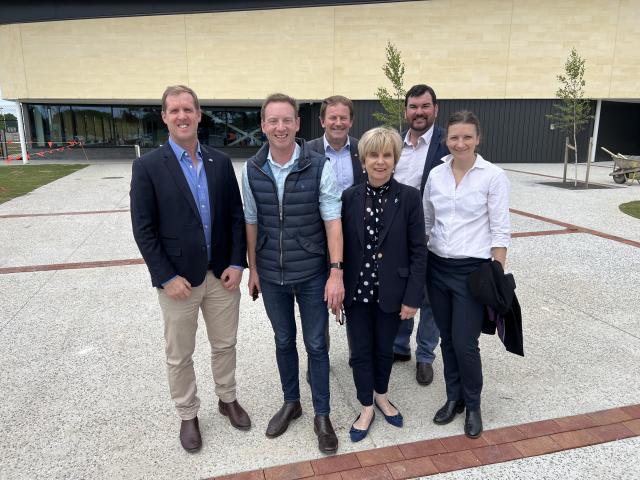
Health, roads and housing were high on the agenda at a community forum with the shadow cabinet last week.
The South Australian Shadow Cabinet toured the South East, meeting with community groups, businesses, councils and local residents.
This culminated in a community forum at the Naracoorte Showgrounds, which gave people an opportunity to raise local issues.
Leader of the Opposition David Speirs spent four days in the region, visiting Naracoorte, Kingston, Robe, Mount Gambier, Coonawarra and surrounding towns.
“It’s so important my team and I have authentic engagement with regional communities, and that means spending quality time on the ground in order to build genuine connections with local residents and businesses,” Mr Speirs said.
“While ducking into town for a quick selfie might make for a nice post on social media, that doesn’t give you the local knowledge you need for policy development and the ability to properly support and deliver for regional communities.
“It’s been fantastic to bring my Shadow Cabinet to Naracoorte so they can listen and learn from those who live and work in the region.
“South Australia is a diverse state and our regional communities each have different needs, there is certainly no ‘one size fits all’ approach.
“The best thing my team can do to deliver for the regions is to travel the length and breadth of the state and I look forward to doing much more of this in the years and months ahead.”
Member for MacKillop and Shadow Parliamentary Secretary for Regional Engagement Nick McBride said these visits are an important way to highlight the issues that matter to MacKillop constituents.
“The Shadow Cabinet has had the opportunity to inspect roads, visit hospitals, schools and businesses in the Limestone Coast,” Mr McBride said.
“This has enabled them to get a better understanding of the needs of this region, which is so vitally important to the economic success of the state.”







